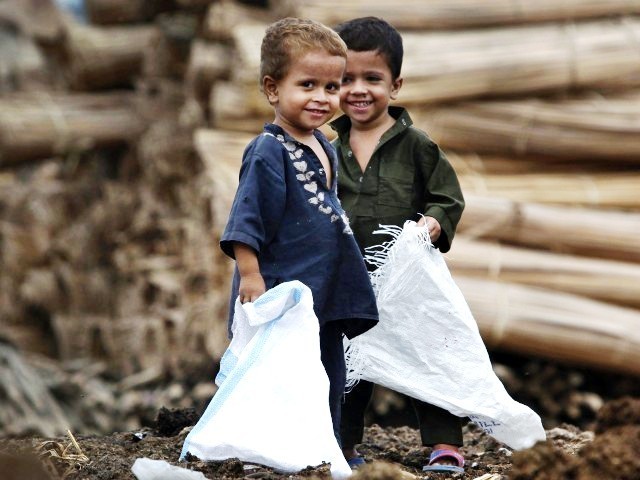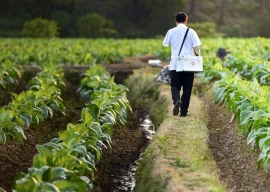
Pakistan has planned some initiatives to end poverty and hunger like investing in green and sustainable agricultural infrastructure to shorten the value chains, revealed Minister for National Food Security and Research Syed Fakhar Imam.
Speaking at the 42nd Conference of the Food and Agriculture Organisation (FAO) of the United Nations, Imam highlighted that despite financial constraints during the pandemic, Pakistan had provided a relief package of $8 billion to the underprivileged segments of society to ensure social safety.
Read: Corruption principal cause of poverty, inequality in developing countries: NAB chief
He pointed out that the relief package provided emergency cash assistance to the poorest families and other vulnerable groups, including women and children.
“Pakistan achieved this through the Ehsaas programme by fully utilizing digital technologies and databases,” he added.
The minister said that agriculture was central to the economy of Pakistan, adding that it contributed 19.3% to the gross domestic product (GDP), employed 35% of the country’s labour force and contributed to the growth of other sectors of the economy.
Imam added that healthy expansion of the agriculture sector stimulated domestic demand for improved food products, industrial goods and supplies of raw material to agro-based industries.
Moreover, the minister stressed that a vibrant rural economy and increased food security depended on the country’s efforts to promote the agriculture sector.
In Pakistan, he said, the prevalence of undernourishment was estimated at around 21% at the national level with disparities at the provincial level, adding that the high prevalence of undernourishment was more than a public health issue and it was a serious hurdle to Pakistan’s economic development.
He apprised the forum that in response to the recession triggered by the Covid-19 crisis, Prime Minister Imran Khan proposed the “Global Initiative on Debt Relief” last April, adding that at a special session of the UN General Assembly, the premier proposed several measures for the generation of early financing to enable developing countries to recover from the Covid-19 crisis.
Read more: Awan highlights poverty alleviation schemes
Imam revealed that the country planned to finance infrastructure including roads, food storages, localized energy grids and markets, which would greatly improve food systems and would assist in increasing food and nutrition security.
“The government plans to work on areas of credit, capacity building of farmers and improving access to and availability of high-value crops and varieties, clubbed with investment in the agricultural value chain,” he added.



1724318195-0/BeFunky-collage]_____-(59)1724318195-0-165x106.webp)















1730706072-0/Copy-of-Untitled-(2)1730706072-0-270x192.webp)
COMMENTS
Comments are moderated and generally will be posted if they are on-topic and not abusive.
For more information, please see our Comments FAQ